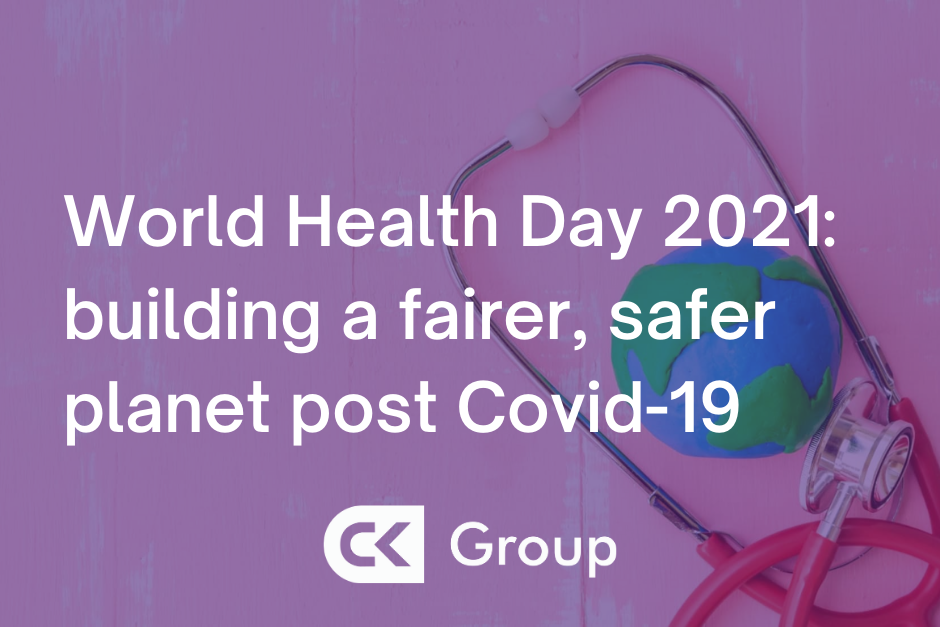World Health Day is held and celebrated annually on the 7th April, organised by the World Health Organisation (WHO).
This year, World Health Day is aiming to highlight inequalities in health and welfare within and between countries, and build a world that is fairer and healthier post Covid-19.
The global pandemic has exacerbated issues with poverty, gender inequality and discrimination. There is convincing evidence that women have exited the workforce in far greater numbers than men, and those who are living in low-income households or countries have significantly lower life expectancies. An estimated 119 to 124 million people have been driven into extreme poverty within the last 12 months as a result of the Covid-19 pandemic.
Therefore, WHO has issued five calls for action this World Health Day in an effort to close the gaps within societies and their healthcare systems, which are:
- Accelerate access to Covid-19 technologies
Many countries are already benefitting from the safe and effective vaccines that have been developed, as well as commodities such as PPE and medical devices. The challenge now is to ensure that they are available to everybody who needs them across the world, and that nobody misses out on live-saving treatment. - Invest in primary healthcare
Whilst we in the UK have access to the NHS, half of the world’s population still don’t have access to essential health services. - Prioritise health and social protection
In many countries, job losses, disruption to education and threats to nutrition have far exceeded the public health impact of the Covid-19 virus. - Build safe, healthy and inclusive neighbourhoods
City leaders are often champions in creating excellent places for people to live, with effective transport systems, clean water and safe housing. However, many communities across the world (especially those in rural areas) are living in poverty with no access to any of these amenities. - Strengthen data and health information systems
Increasing access to high-quality data on subjects from race to gender, and education to ethnicity, will be key to highlighting where inequalities exist and what can be done to address them. Ensuring that everybody is represented and included will enable countries to ensure that time and resources are distributed fairly.
Throughout the pandemic, CK Group has supported Covid-19 relief projects through the recruitment of science and clinical staff. We have worked with global pharmaceutical and healthcare companies to help develop diagnostic equipment, medical devices and vaccines, as well as undertake essential clinical trials and provide support to those who need it the most.
Find out how we can support your recruitment activities here.
Or, search our latest jobs here.
